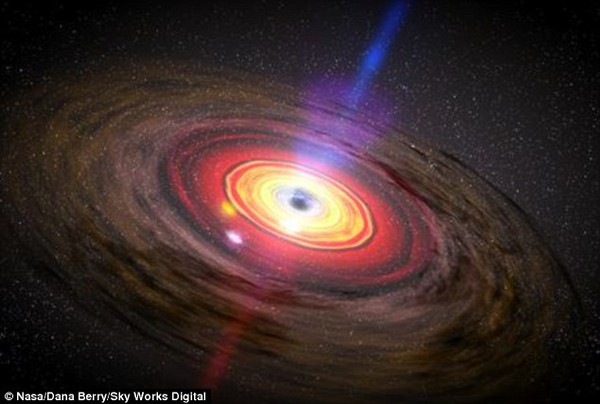According to British researchers, this black hole is several times larger than the black holes known to scientists.
A recent study by astronomers from Keele University and the University of Central Lancashire (UK) discovered a supermassive black hole located in the central region of a galaxy called SAGE0536AGN.

As a result, this black hole is several times larger than what scientists have known. Compared to the Sun, it has an equivalent mass of about 350 million times.
Further research, experts discovered, the galaxy SAGE0536AGN is 9 billion years old, discovered by the Spiter telescope of the United States Space Agency (NASA).
The team confirmed the existence of a black hole in the center of the galaxy by measuring the speed of gas swirling around it. They then used a large telescope in southern Africa to collect more information, determining the size of the black hole.
According to experts, giant black holes tend to grow to the size of the galaxy around them. Considering its enormous size, it is very likely that the black hole has engulfed gas and other surrounding matter in the galactic center with astonishing speed.
Dr Jacco van loon from Keele University – lead author of the study said: “Galaxies are massive, so black holes in their nuclei have to be massive. However, this black hole is too big for that to happen. galactic activity. They shouldn’t be so abnormal. ”
In addition, experts also found that this “monster” black hole is extremely bright. Scientists explain that because the surrounding gas has a large gravitational field, the great acceleration causes the black hole to emit light. Currently, experts continue to study this “monster” black hole further.


